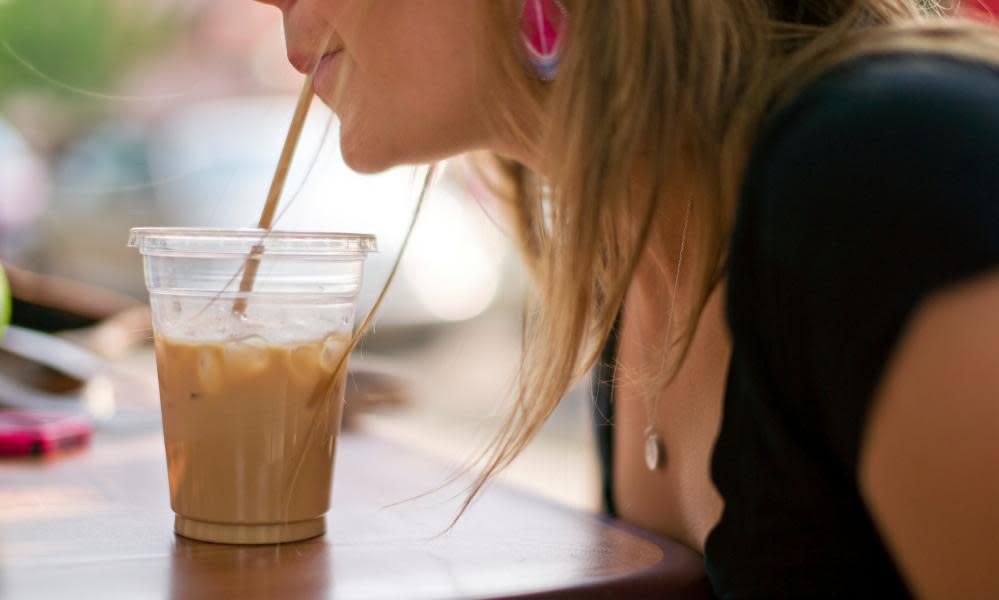New York City to consider banning plastic straws

A New York City council member announced on Wednesday his plan to ban plastic straws from the city of 8.5 million people, amid a growing effort across the globe to cut back on plastics.
“We depend on plastic, and that is a trend we have to reverse immediately,” said city council member Rafael Espinal, who discussed his proposed ban at a press conference on the southern tip of Manhattan, with the Statue of Liberty in the background.
Various governments and businesses have been jolted by concerns over plastic pollution by cracking down on the humble straw.
Alaska Airlines on Monday said it would phase out plastic stirrers and straws from its in-flight service. In April, the British government announced plans to ban plastic straws, along with stirrers and cotton buds, by next year. And McDonald’s has said its customers in the UK will have to ask for straws if they want them and has announced a trial of paper straws.
Espinal’s proposed ban follows a failed effort by the city council to add a 5-cent fee to plastic and paper bag use. New York’s governor, Andrew Cuomo, has said he supports banning plastic bags but has not advanced a plan to enact such a ban, which already exists in California and Hawaii.
Espinal spoke at an observation point on the Hudson river nestled between crowds of tourists, including two men who sipped iced coffee using plastic straws.
The pair gestured at their straws as Espinal spoke about his concerns, then left just after the council member said he would be introducing a bill to ban plastic straws to the city council that afternoon.
In the interim, Espinal has advised New York City businesses to stop automatically providing plastic straws at restaurants and in takeaway orders and instead only provide them at the customer’s request.
Espinal also announced that more than 130 restaurants in the city had signed on to the “Give a Sip” campaign, which promotes using straws made from plastic alternatives including biodegradable paper, bamboo and metal.
The city’s Wildlife Conservation Society (WCS) is leading this campaign, which has signatories including museums, hotels and Michelin-starred fine dining restaurants. Notably absent from the list are some of the main culprits of New York City’s straw use: coffee shops, juice bars and fast-food restaurants.
John Calvelli, WCS’s executive vice-president of public affairs, said plastic straws were deadly for local turtles, whales, fish and birds. “A single straw may seem like nothing; it’s not,” Calvelli said.
This effort was also supported by the Yemeni American Merchants Association, a group that represents hundreds of owners of New York City corner stores, known as bodegas.
“You would be amazed to see how many people use doubles straws, how many people use straws as a toothpick,” said Zaid Nagi, vice-president of the association.
If the bill is enacted into law, restaurants that continue to use straws, or plastic stirrers, would be warned, then face fines between $100 and $400. It would also make exceptions for people with disabilities or medical conditions that require them to use straws.
In the US, the west coast cities of Seattle – following a campaign dubbed “Strawless in Seattle” – and Malibu, near Los Angeles, have declared war on straws, while statewide bans of the items are being considered in California and Hawaii.
Industry groups, meanwhile, are calling for improved recycling processes and more customer choice, rather than outright bans. Steve Russell, vice-president of plastic business lobbyist the American Chemistry Council, has said that “providing straws through an ‘on-demand’ system gives customers choice and helps prevent waste by ensuring that straws are distributed only to those who need them”.
A recent study estimated that there are about 7.5m plastic straws strewn on America’s beaches, amid 35m tons of plastic pollution produced worldwide every year, an estimated quarter of which is dumped in rivers, streams and the oceans.
Fishing equipment and plastic bags generally cause more widespread harm to wildlife than straws when discarded in the environment. The lightweight nature of straws makes the items difficult to recycle, however, meaning they slowly break down into harmful microplastics. Whole straws are also capable of causing harm, as evidenced by a viral video from 2015 that showed a straw stuck up the nose of a sea turtle.
“Few people realize that straws are among the top 10 items found during beach clean ups and can do so much harm to seabirds, turtles and other marine creatures,” according to For A Strawless Ocean, a campaign group.
“As an item of convenience for the vast majority of us, we believe refusing the single-use plastic straw is the easiest and simplest way for everyone to take action today to address plastic pollution.”

 Yahoo News
Yahoo News 
